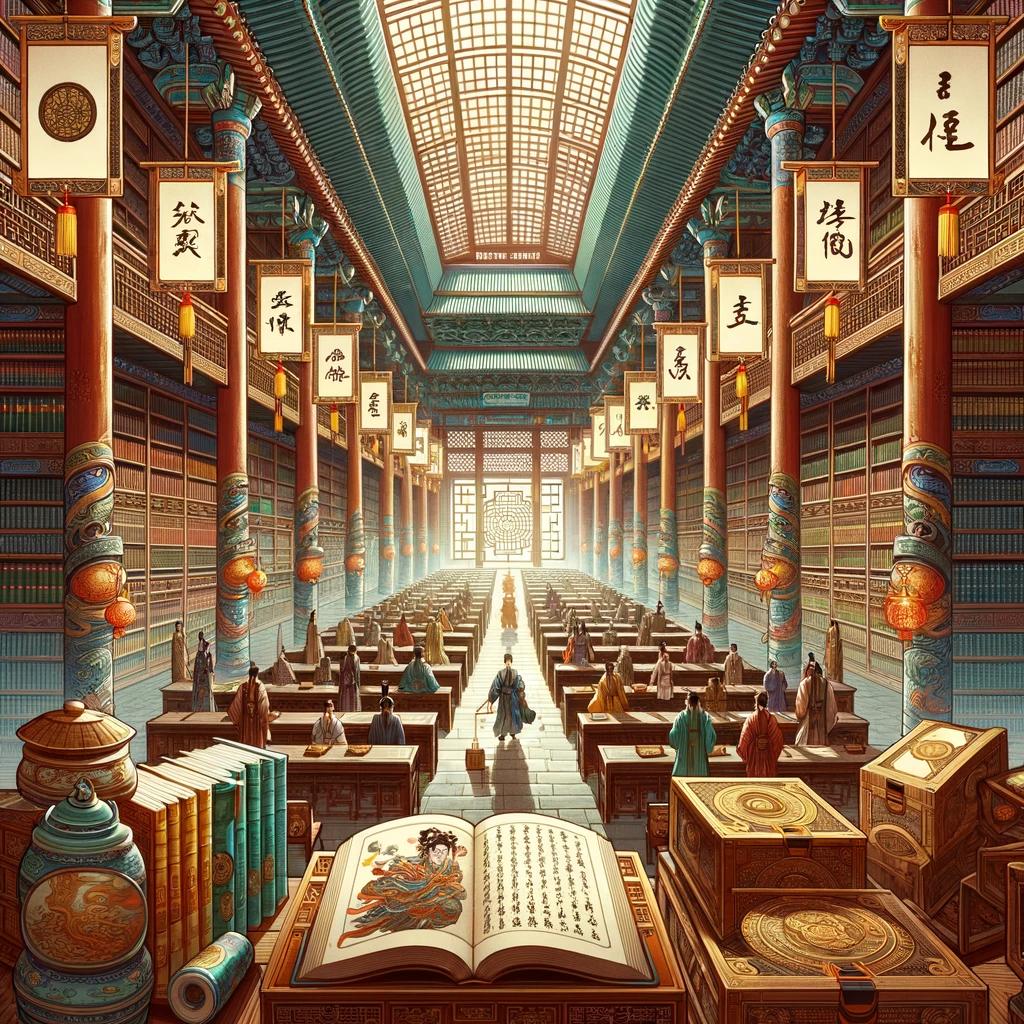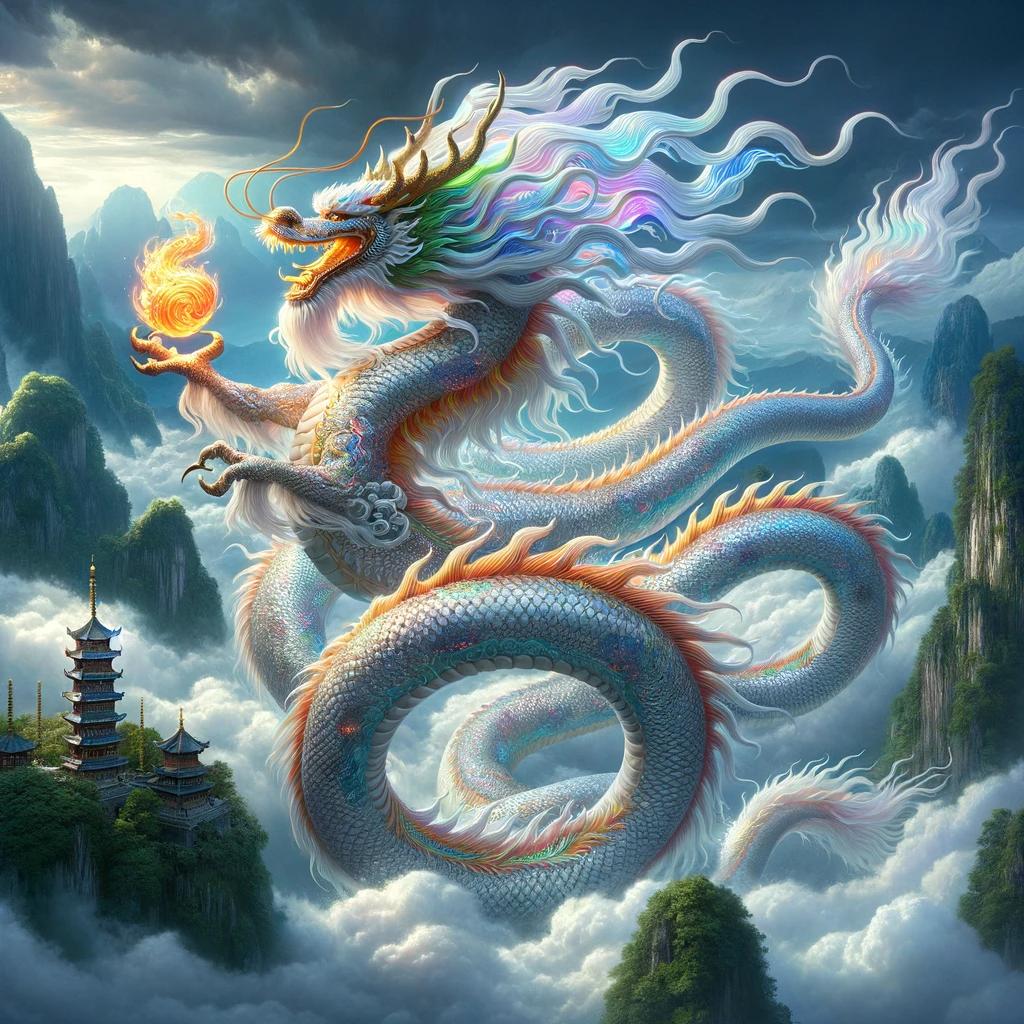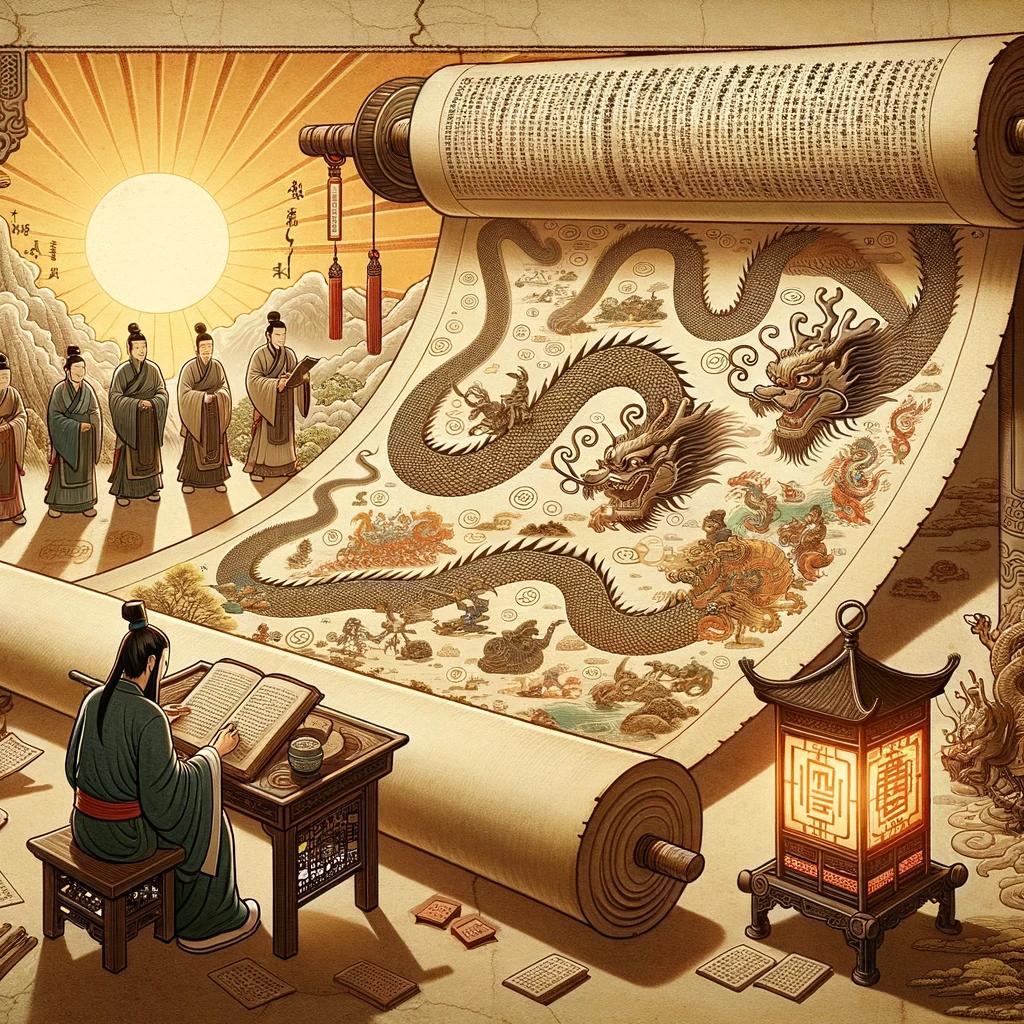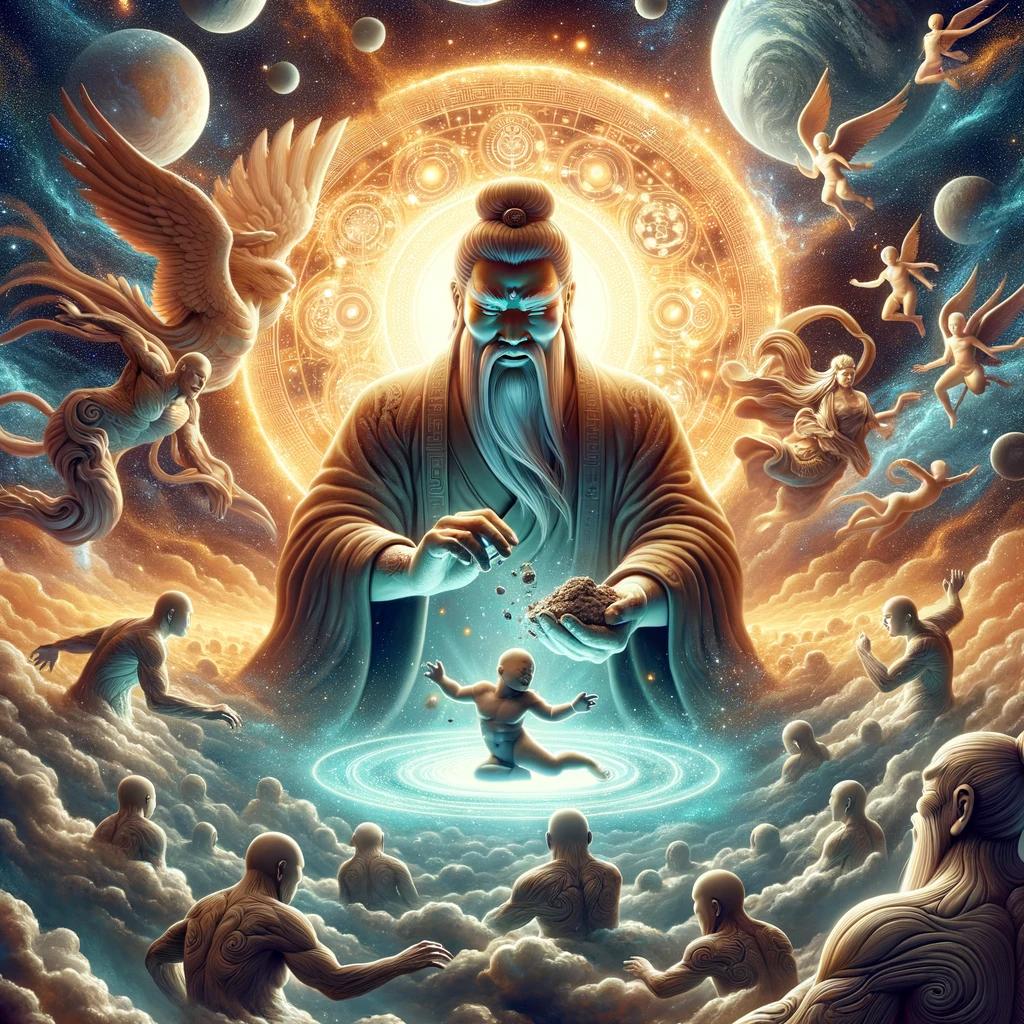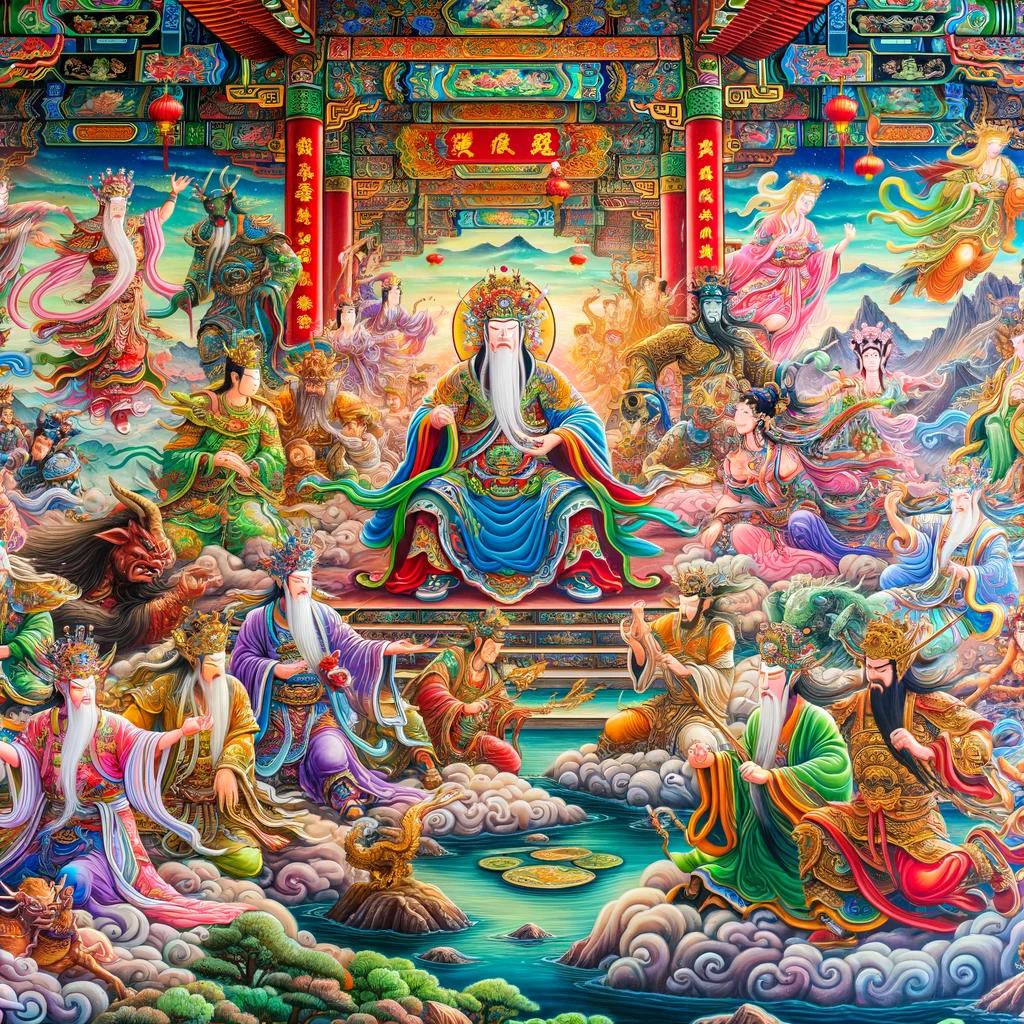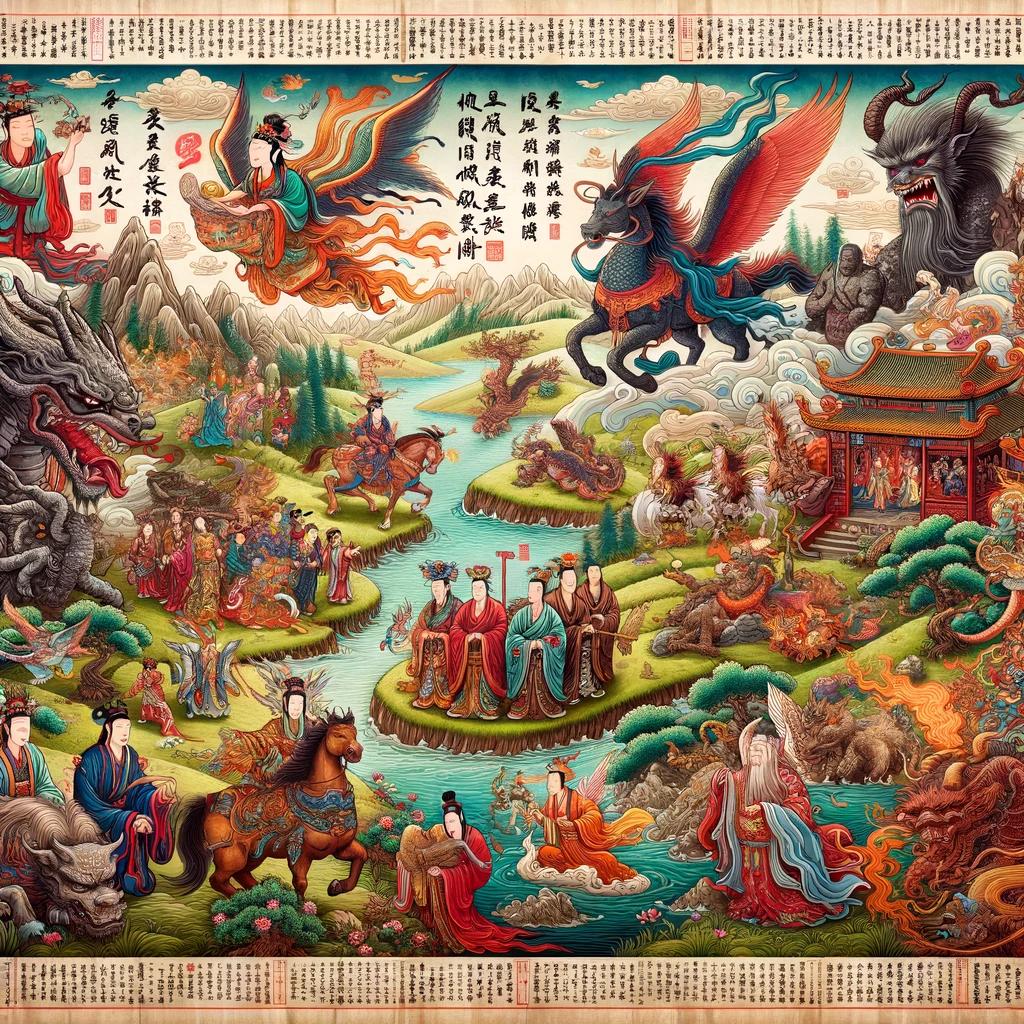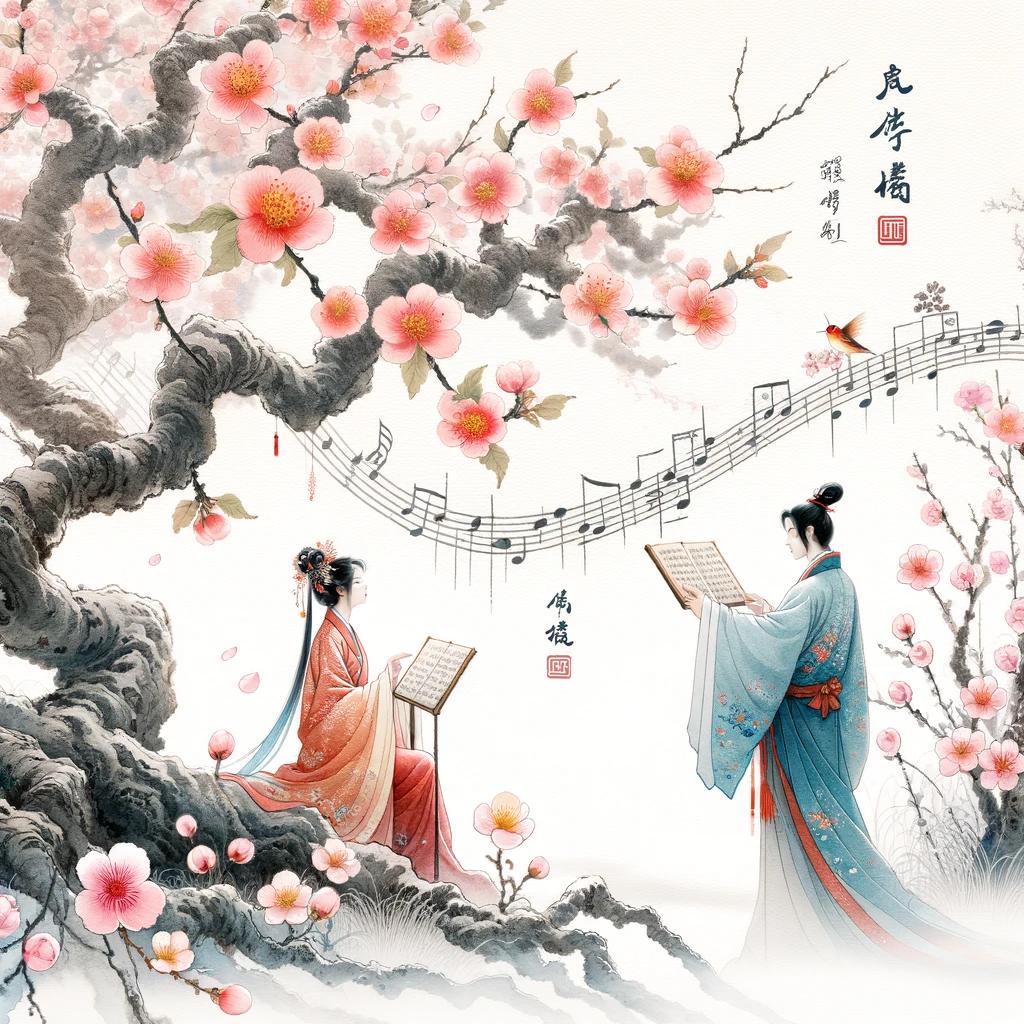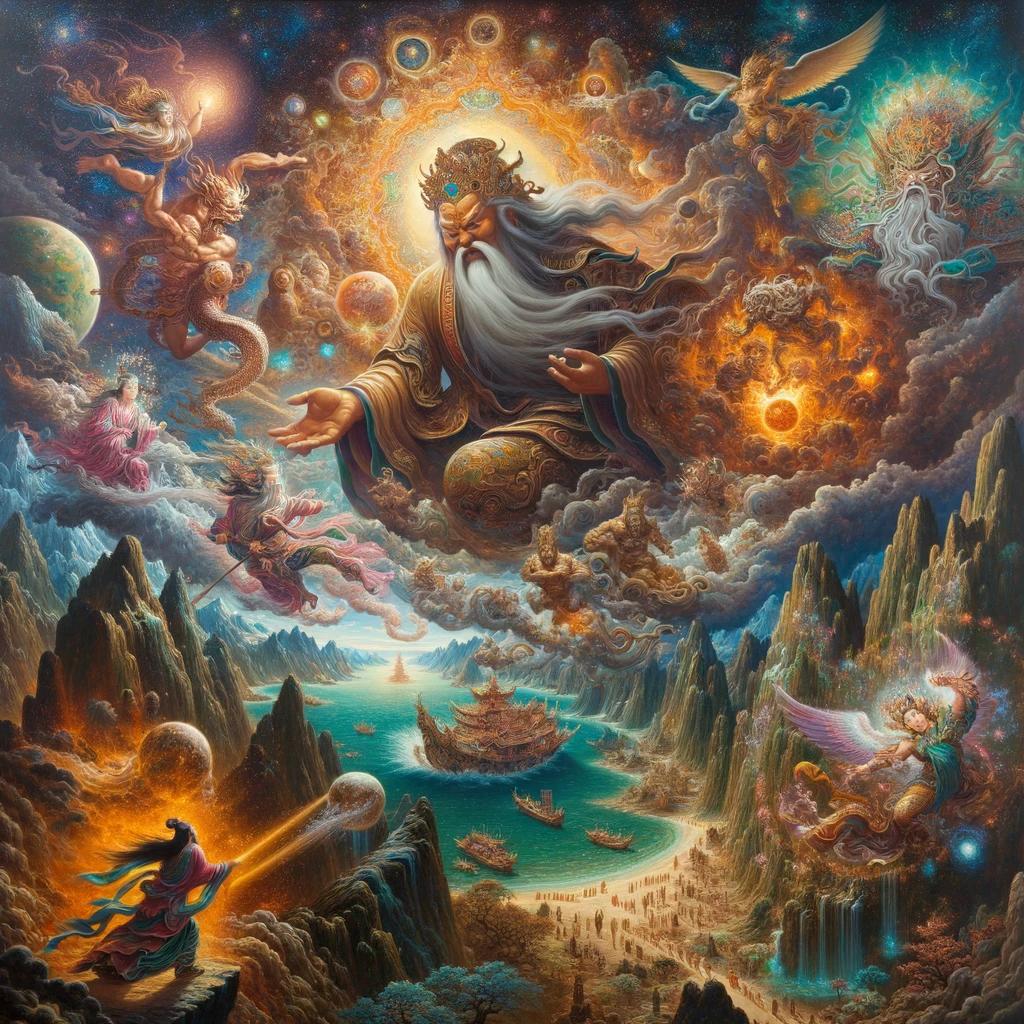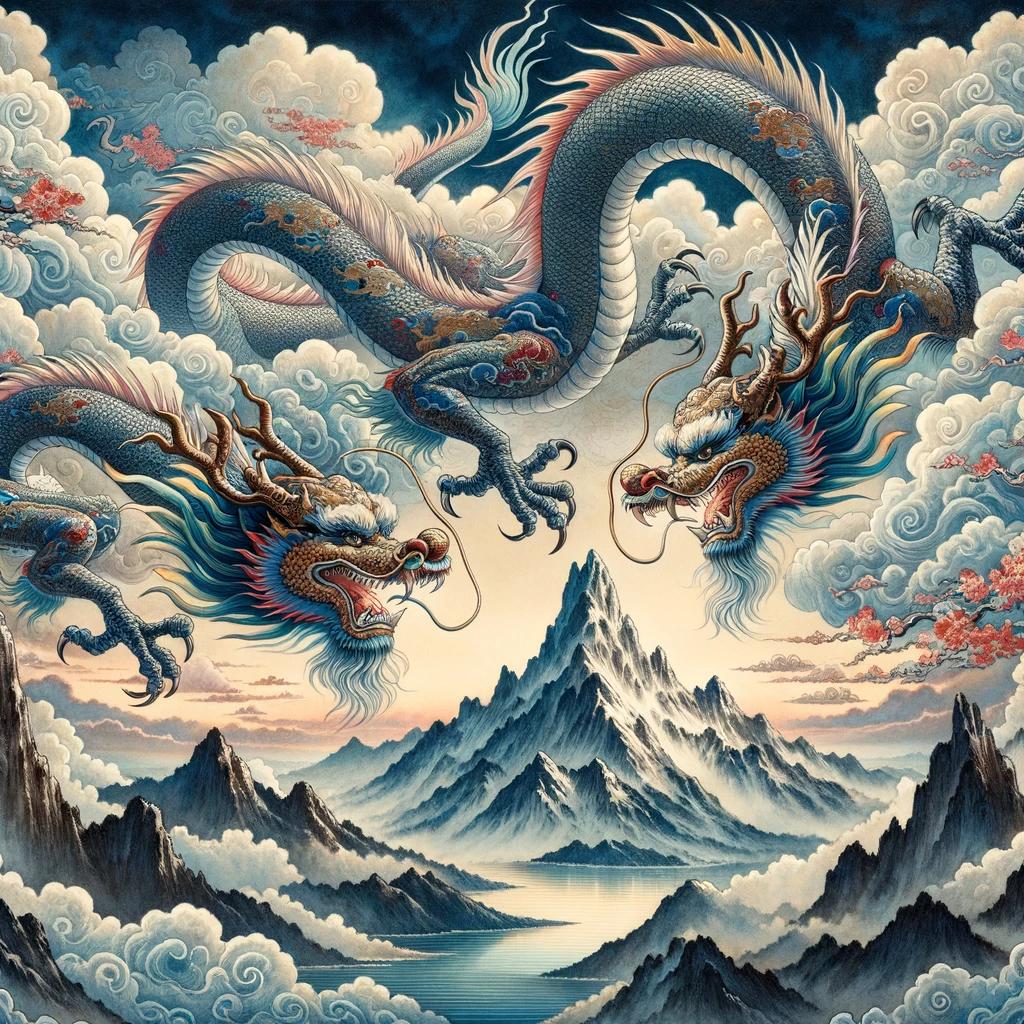Who is the Strongest in Chinese Mythology: Exploring the Powerhouses of Ancient China
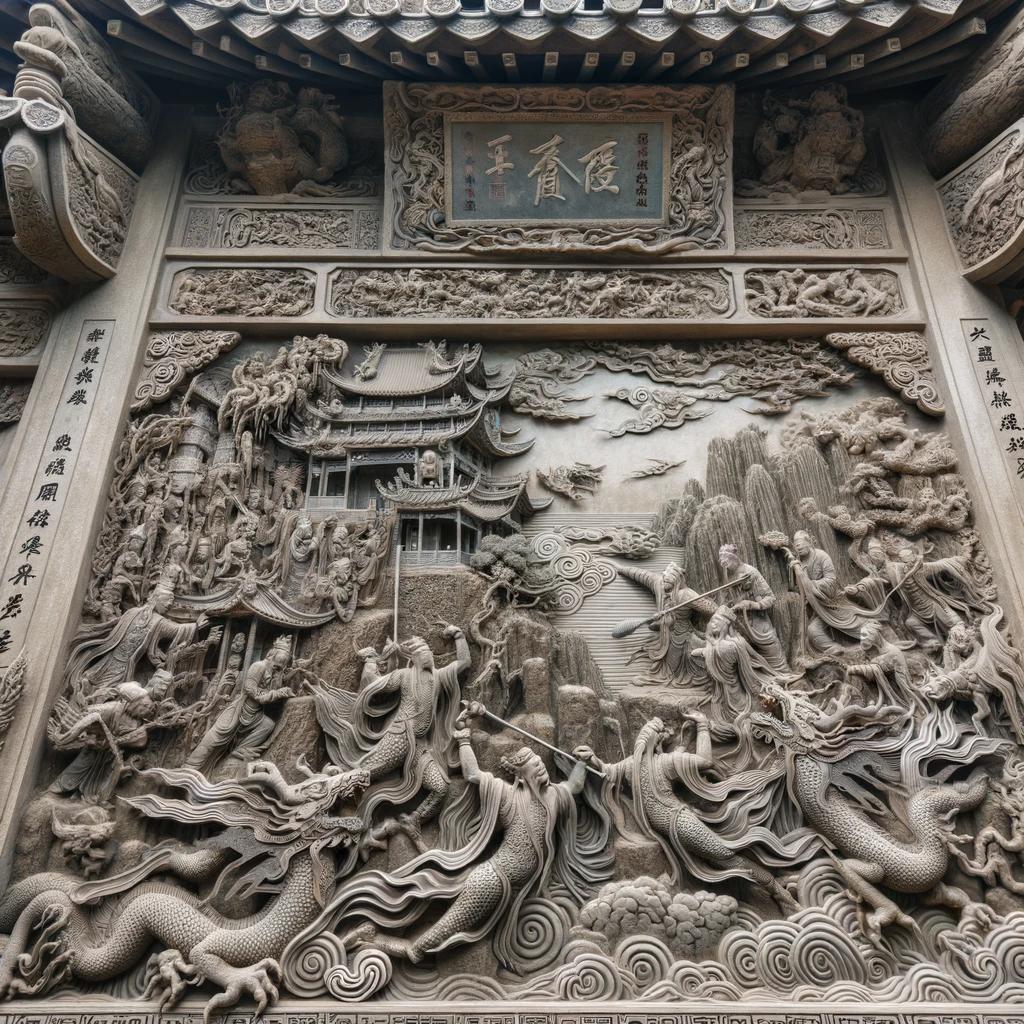
In Chinese mythology, there are several powerful gods and goddesses who play significant roles in the creation of the world and the destiny of humans. The Jade Emperor, Wangmu Niangniang, Guan Yin, Yan Wang, Ne Zha, Long Wang, and Nüwa stand out as some of the strongest beings in Chinese mythology.
From the ruler of heaven to the goddess of mercy and the king of dragons, each deity possesses unique powers and responsibilities. Join us on this journey to explore the strength and significance of these mythological figures.
The Jade Emperor: Supreme Ruler of Heaven
The Jade Emperor, also known as Yuhuang Shangdi, holds the prestigious title of the Supreme Ruler of Heaven in Chinese mythology. Represented with his long hair, seated on a imperial throne, and wearing a hat adorned with 13 pearl tassels, he exudes an air of authority and power.
Considered the first god in Chinese culture, the Jade Emperor governs over all other deities and is believed to be the ultimate arbiter of human destinies.
As the ruler of heaven, the Jade Emperor’s responsibility extends to overseeing the celestial realm, including the realms of gods and immortals. He not only sets the laws and regulations that govern the cosmos but also ensures order and balance in the universe.
It is through his divine wisdom and leadership that the celestial hierarchy operates harmoniously.
In addition to his administrative duties, the Jade Emperor also serves as the divine judge in matters of human affairs. It is believed that he judges the souls of the deceased, determining their fate in the afterlife.
As such, he embodies both immense power and profound wisdom, making him a central figure in Chinese mythology and culture.
The presence of the Jade Emperor in Chinese mythology underscores the importance of heavenly authority and divine governance within the belief system. Revered and respected by mortals and deities alike, the Supreme Ruler of Heaven plays a crucial role in shaping the destiny of the world and the lives of its inhabitants.
Wangmu Niangniang: The Most Powerful Goddess
Wangmu Niangniang, also known as the Queen Mother of the West, holds a distinguished position as the most powerful goddess in Chinese mythology. She wields complete control over life, happiness, and immortality, making her an influential figure in the celestial realm.
Her role primarily revolves around tending to the sacred Peaches of Immortality in her heavenly gardens and overseeing the delivery of babies to deserving couples. Over time, her appearance has transformed, transitioning from a demonic figure to that of a middle-aged woman with tiger teeth and a leopard tail, radiating authority and strength.
As the embodiment of female power, Wangmu Niangniang commands respect and reverence. Her divine presence symbolizes the vital aspects of life and the pursuit of eternal bliss. Whether it is guiding souls or bestowing blessings upon mortal beings, she serves as a beacon of hope and prosperity in the intricate tapestry of Chinese mythology.
Guan Yin: The Mercy Goddess
Guan Yin, also known as the Goddess of Mercy, holds a revered position in Chinese mythology. Her name reflects her significant power of observing and listening to the cries and prayers of mortals.
Both Taoists and Buddhists alike hold her in high regard, making her a beloved goddess. She is often depicted wearing a white robe, carrying a willow branch that has the ability to heal all ailments, and holding a magical purifying water vessel.
Guan Yin’s compassionate nature extends to all who call upon her. She is revered as a deity who listens to the pleas of those in need, offering solace and assistance.
Many have sought her divine guidance and protection in times of hardship. Her presence brings comfort and her wisdom provides guidance, making her an essential figure in Chinese mythology.
The image of Guan Yin has evolved over time, from a demon-like figure to that of a middle-aged woman with tiger teeth and a leopard tail. Yet, her essence as the merciful goddess has remained unchanged.
Her transformation reflects the evolving beliefs and cultural understanding of the Chinese people throughout history.
In Chinese mythology, Guan Yin’s role goes beyond just compassion. She represents the embodiment of kindness, empathy, and the power to alleviate suffering in the world. Her ability to bring peace and comfort to those who seek her help has solidified her place as one of the most revered and powerful goddesses in Chinese mythology.
Guan Yin’s significance in Chinese culture is evident as her influence can be seen in various aspects of life. From temples dedicated to her worship to the countless individuals who turn to her in times of need, Guan Yin’s presence is felt and respected.
Her story and attributes serve as a reminder of the importance of compassion and mercy in the lives of believers and the broader Chinese society.
Yan Wang: Ruling Over the Underworld
Yan Wang, known as the King of the Underworld, holds immense power over the realm of the dead in Chinese mythology.
His terrifying appearance, with prominent eyes, red skin, and a long beard, strikes fear into the hearts of mortals. Yan Wang dons traditional Chinese attire along with a judge’s cap, symbolizing his authority and wisdom in passing judgment upon every soul.
As the ruler of the underworld, Yan Wang possesses supernatural abilities that make him nearly invincible. He can manipulate souls and has immunity to earthly diseases. His strength and endurance surpass those of mere mortals, making him a formidable deity to encounter.
Within the realm of the dead, Yan Wang judges the fate of each individual soul, determining their eternal destiny. His role in the afterlife is crucial in maintaining balance and justice.
Though his appearance may be fearsome, Yan Wang upholds fairness in his judgments, ensuring that each soul receives their rightful fate.
Yan Wang’s significance in Chinese mythology reflects the cultural beliefs and values surrounding death and the afterlife.
His portrayal represents the inevitable cycle of life and the importance of accountability for one’s actions in both the mortal world and beyond.
Ne Zha: The God Born from a Ball of Fire
Ne Zha, an incredibly powerful god in Chinese mythology, has a unique and fascinating origin.
He was born as a fiery ball, a manifestation of intense cosmic energy. As he grew, his powers became apparent, showcasing his ability to wield a Cosmic Wheel that caused tremendous earthquakes.
One of Ne Zha’s most notable feats was his legendary battle against the Dragon King, whom he emerged victorious against. However, despite his triumphs, Ne Zha ultimately had to make a sacrificial choice to save China from devastating floods.
He willingly offered himself and was subsequently reborn in a body composed of lotus roots.
Ne Zha’s rebirth symbolizes resilience, transformation, and the cyclical nature of life. As a god associated with fire and immense power, he continues to be revered and honored in Chinese mythology and culture.
His story serves as an inspiration for overcoming challenges and embracing change.
Long Wang: The King of Dragons and the Sea
In Chinese mythology, Long Wang holds a prominent position as the ruler of the dragons and the vast oceanic realms. Known as the King of Dragons and the Sea, Long Wang exerts his authority over all aquatic creatures, ensuring harmony in the deep waters.
Long Wang possesses the ability to transform into either a mighty Chinese dragon or a human form adorned with royal attire. With his reddish skin symbolizing his divine power, he commands respect and awe from both mortal and celestial beings.
As the overseer of water-related phenomena, Long Wang is responsible for maintaining the balance of the seas and controlling weather patterns like rainstorms and tidal waves. His dominion extends not only to the physical realm but also includes the spiritual aspects associated with the sea, such as the guidance and protection of sailors and fishermen.
Legends depict Long Wang as a benevolent and wise ruler, often seeking tranquility and peace. However, if provoked or if the natural order of the oceans is endangered, his fierce wrath can be unleashed, causing tempestuous waves and devastating storms.
The presence of Long Wang in Chinese mythology symbolizes the eternal power and mystique of the ocean. His role as the King of Dragons underscores his status as one of the strongest divine beings, commanding authority over an entire realm and embodying the forces of nature.
Nüwa: The Creator of Humanity
Nüwa is a prominent figure in Chinese mythology, revered as the divine being responsible for creating humanity. As the creator and nurturer of humankind, she holds a significant role in shaping the human world.
Represented as a supernatural creature with a human face and a serpent body, Nüwa is often depicted wearing a traditional Chinese hanfu.
Legend has it that Nüwa crafted humans from yellow clay, carefully molding each individual to create a diverse and vibrant population.
Not only did she bring life to mankind, but she also played a crucial role in repairing the damaged pillars that held up the sky, ensuring the stability and harmony of the earthly realm.
Through her benevolent acts, Nüwa is not only a creator but also a compassionate deity who is approached by women seeking guidance on marital matters and issues related to fertility. She is revered for her wisdom and her ability to bring balance and order to the world.
The influence of Nüwa extends beyond her role as a creator. She is regarded as a symbol of femininity and the nurturing qualities associated with motherhood. Her presence in Chinese mythology reinforces the importance of balance and the interconnectedness of humans with the natural world.
Nüwa’s inclusion in Chinese mythology provides a glimpse into the deep cultural beliefs and traditions that have shaped the Chinese perspective on the creation and existence of humanity. Her profound influence continues to resonate within the hearts and minds of people, reflecting the enduring power of mythology in our collective consciousness.
Debates on the Strongest Being in Chinese Mythology
When it comes to determining the strongest being in Chinese mythology, opinions vary among scholars and enthusiasts. While each deity possesses remarkable powers and plays a crucial role in the mythological hierarchy, comparing their strength is a subject of ongoing deliberation.
One prevailing argument is that Sun Wukong, also known as the Monkey King, holds the title of the strongest being in Chinese mythology. Sun Wukong’s incredible feats, such as defeating heavenly and hellish forces and achieving immortality, solidify his powerful status.
However, it is essential to note that even though Sun Wukong managed to challenge the heavens, he was ultimately subdued by the wisdom and power of Buddha, which raises questions about his absolute strength.
Others contend that the Three Pure Ones, high-ranking deities in Taoism, should be considered the strongest beings. These celestial beings embody the ultimate principles of the Tao and possess immense power and wisdom.
However, the lack of a definitive answer or consensus prevents us from declaring them as the undisputed champions of Chinese mythology.
It is crucial to recognize that Chinese mythology is vast and comprises numerous mighty deities, each with their unique abilities and roles.
From the supreme ruler of heaven, the Jade Emperor, to the powerful goddess Wangmu Niangniang and the God of the Underworld, Yan Wang, these figures contribute to the mystical tapestry of Chinese mythology.
The debates regarding the strongest being in Chinese mythology highlight the complexity and richness of these ancient tales. As we delve deeper into this fascinating world, we continue to explore and appreciate the diverse pantheon of powerful entities that have shaped Chinese culture and beliefs throughout history.
Other Powerful Deities in Chinese Mythology
In addition to the aforementioned gods and goddesses, Chinese mythology is rich with many other powerful divine beings. Here are a few notable ones:
- Lei Gong: Also known as the God of Thunder, Lei Gong wields control over storms, lightning, and thunder.
He is depicted as a fearsome figure with a red face, holding a drum that creates thunderous sounds.
- Zhu Rong: As the God of Fire, Zhu Rong possesses mastery over flames and is associated with volcanoes.
He is often depicted as a muscular figure holding a weapon and surrounded by fire.
- Daji: Daji is a seductive and cunning fox spirit who is both mesmerizing and dangerous. Known for her beauty and manipulation, she played a significant role in the downfall of the Shang Dynasty.
- Fuxi and Nuwa: Fuxi and Nuwa are legendary figures revered as the first human couple in Chinese mythology.
They are credited with inventing important cultural elements such as hunting, fishing, and marriage.
- Zhong Kui: Zhong Kui is a ghost hunter and protector against evil spirits. He is often depicted as a fierce warrior with a sword and a demonic-looking face, ready to battle supernatural forces.
These are just a few examples of the many powerful deities in Chinese mythology.
Each brings their unique strengths, abilities, and contributions to the fascinating world of ancient Chinese beliefs and traditions.
.

